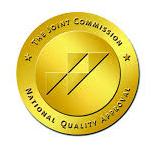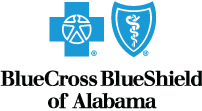Your Recovery Matters (especially during the holidays)
/Why do the holidays suck? Or seem to at least? The holidays are intended to be a time of connection and merriment and joy. But for those suffering with mental health issues, the holidays can greatly exacerbate intense feelings of depression, isolation and grief.
It’s an important time to remember that there are many who need compassion and kindness and hope during the season of love. If you are struggling in recovery, remember it is important to do what is best for you. No matter what. If you aren’t comfortable in a situation, it’s okay to say no to an invite or leave a place that feels overwhelming. Regardless of how you are feeling, self care is the most important thing. Your recovery is the most important gift you give yourself everyday. Honor it. Live it. No matter what.
Plan Ahead Identify safe people in your life who can support you over the holiday break and ask for their help. Let them know what helps you and have a signal if you get overwhelmed.
Be With People Although it may seem easier to avoid people, don’t. Isolating will only exacerbate your feelings of loneliness. Maybe stay for a shorter time, or with certain folk, but don’t isolate.
Follow Your Meal Plan The holidays may trigger the emotions that cause you to to restrict. Don’t. The holidays are not a an excuse to not take care of yourself. In fact it’s all the more reason to use the safety net of your meal plan.
Your Needs Matter More If someone challenges your recovery or makes insensitive comments, take care of yourself. You aren’t required to let others be mean to you. Advocate for yourself and let them know it’s not kay to say such things to someone in recovery.
Hold Your Boundaries Being nice doesn’t mean letting people push you around. If you feel unsafe or uncomfortable let someone know and take care of yourself the best way you can.
Allow Yourself Joy It’s not always easy but allow yourself some happiness, even when it’s hard.
Be Kind To yourself most of all!
Reach Out If you aren’t feeling safe or need someone to talk to reach out to a friend, a family member or contact your local crisis center or emergency room.
Crisis Intervention Contact Information
Information provided from C/Net article:
13 suicide and crisis intervention hotlines to call or text when you need help
If you or anyone you know is experiencing abuse, domestic violence, suicidal thoughts or sexual assault, these are the numbers to call.
October 10, 2019 9:00 AM PDT
“If you feel like you or someone you know is in immediate danger, you should call 911 (or your country's local emergency line) or go to an emergency room to get immediate help. Explain that it is a psychiatric emergency and ask for someone who is trained for these kinds of situations.
You don't need to be experiencing a crisis to contact a crisis hotline. At most of these hotlines, the volunteers and counselors who answer calls, texts and chat messages are trained to help someone in crisis. But you can also reach out if you're feeling sad, anxious or stressed and don't know where to turn.
These hotlines also serve friends, family members and loved ones of someone who is experiencing a mental health crisis, domestic violence, abuse, addiction and many other issues. “
Mental health and suicide hotlines
These two services specialize in helping individuals (and their friends, family and loved ones) who are having suicidal thoughts. That said, both services can provide support for other mental health issues.
National Suicide Prevention Hotline -- 1-800-273-8255
The National Suicide Prevention Hotline fields calls 24/7 for anyone with suicidal thoughts or who are in crisis. They offer help for Spanish-speakers and anyone who is deaf or hard of hearing.
Their website also offers many resources to get help for yourself or someone you know.
Crisis Text Line -- Text Hello to 741741
Crisis Text Line
Crisis Text Line fields messages about suicidal thoughts, abuse, sexual assault, depression, anxiety, bullying and more. What makes it unique is that it's entirely text-based, which makes it easy for anyone who doesn't feel comfortable or safe talking on the phone to use it.
You can text 741741 in the US or UK (686868 in Canada), or message Crisis Text Line on Facebook for help. You'll be matched with a volunteer counselor, who is supervised by a licensed, trained mental health professional.
Crisis hotlines for kids and teens
These two services are aimed at different audiences. YouthLine is available for kids and young adults who want to talk to someone about what's happening in their lives, while ChildHelp tackles issues of child abuse.
YouthLine -- Text teen2teen to 839863, or call 1-877-968-8491
YouthLine provides a safe space for children and adults ages 11 to 21, to talk through any issues they may be facing, including eating disorders, relationship or family concerns, bullying, sexual identity, depression, self-harm, anxiety and thoughts of suicide.
Childhelp National Child Abuse Hotline -- 1-800-422-4453
For issues related to child abuse, Childhelp connects you with a professional counselors to help in a crisis, and provide information on how to get help. They offer phone support in 170 languages.
Domestic and sexual violence hotlines
For anyone who is a victim of domestic violence or sexual assault (or know someone who is), these hotlines offer counseling and advice.
National Domestic Violence Hotline -- 1-800-799-7233
Anyone who is experiencing domestic violence and/or abuse, plus anyone concerned about a friend, family member or loved one can call the National Domestic Violence Hotline (NDVH) 24 hours a day, seven days a week.
They offer support in more than 200 languages, and offer a confidential, secure online chat.
RAINN
National Deaf Domestic Violence Hotline -- 1-855-812-1001
The National Deaf Domestic Violence Hotline is a spinoff from the NDVH specifically for Deaf and Hard of Hearing individuals.
You can get help over email, or talk via video call to a trained counselor.
RAINN -- 1-800-656-4673
RAINN's (Rape, Abuse & Incest National Network) hotline is for anyone who's experienced sexual abuse or assault.
When you call their main hotline, you'll be connected with someone at a local organization in your area who can provide live support and direct you to additional resources.
Hotlines for the LGBTQIA+ community
Whether you're struggling with your gender identity or sexuality, or are experiencing a crisis and want to talk to someone who is part of the LGBTQIA+ community, you can lean on these hotlines.
The Trevor Project -- 1-866-488-7386 or text START to 678678
LGBTQIA+ kids and teens can reach out to The Trevor Project for support during a crisis, if they are feeling suicidal or need a safe space to talk about any issue. You can also chat via their website or by texting START to 678678.
Trans Lifeline -- 1-877-565-8860
The Trans Lifeline provides support specifically for transgender and questioning callers, run trans people. They provide support during a crisis and can also offer guidance to anyone who is questioning their gender and needs support.
The hotline is available between 7 a.m. and 1 a.m. PST (9 a.m. to 3 a.m. CST or 10 a.m. to 4 a.m. EST). But, operators are often available during off-hours, so no matter when you need to call, you should.
A few other LGBTQIA helplines that offer support, but not necessarily crisis intervention:
LGBT National Hotline -- 1-888-843-4564
LGBT National Youth Talkline -- 1-800-246-7743
LGBT Senior Hotline -- 1-888-234-7243
Drug or alcohol abuse
If you are experiencing any kind of emergency situation related to drug or alcohol use, you should call 911 or your local emergency line.
SAMHSA National Helpline – 1-800-662-4357
If you are struggling with addiction or are concerned about a loved one's alcohol or drug abuse, you can contact the hotline for the Substance Abuse and Mental Health Services Administration. This US government agency offers support and information about treatment and recovery.




